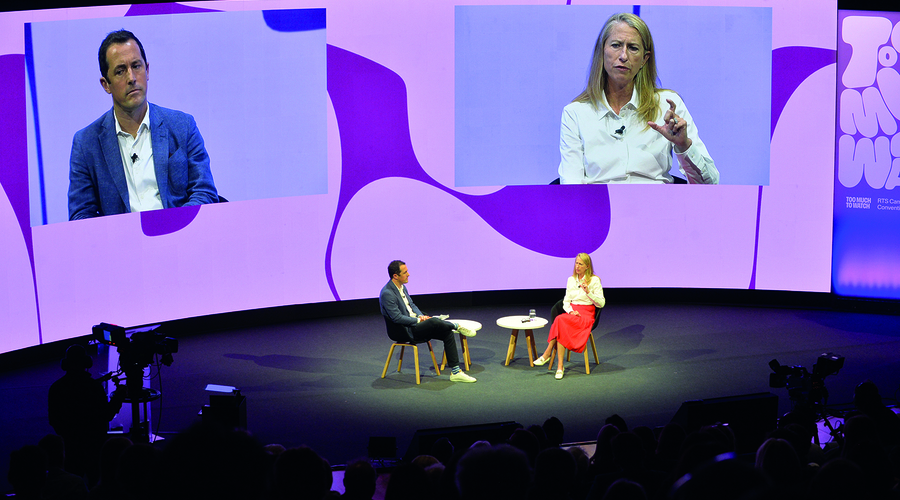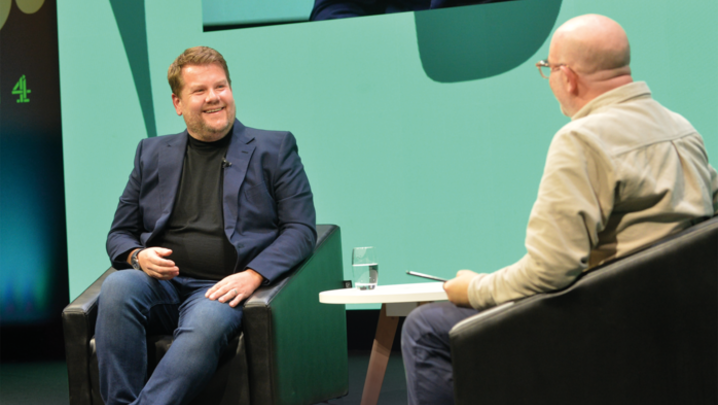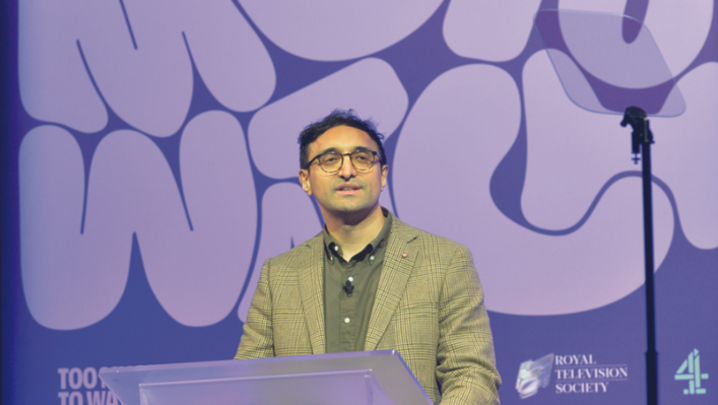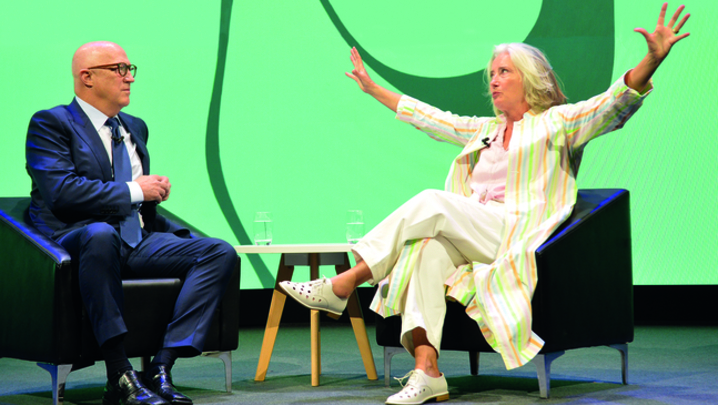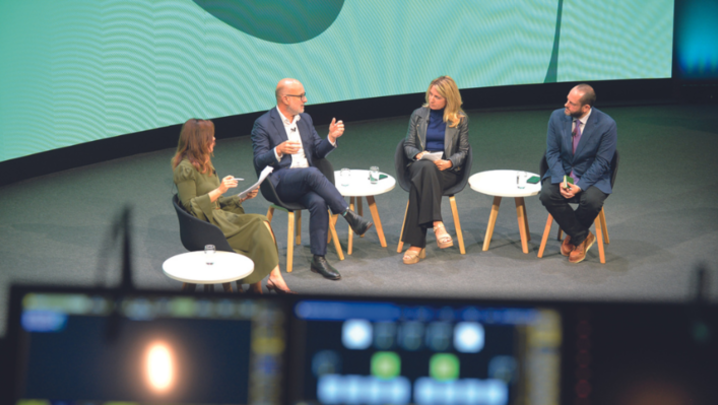Sky’s CEO explains why the UK creative industries need more help through state intervention
Matthew Garrahan, Financial Times: Sky was primarily a satellite business. You’ve moved aggressively into IP. Are you turning off the satellite dishes any time soon?
Dana Strong, Sky: It’s a key strategic pillar for us to move on to a new, IP-based platform and this year we literally blew the satellite dish up in our TV commercials.… Seeing where the trends in consumption were going, we wanted to ensure consumers had choice…
The most frustrating element right now… that we hear about from consumers is how long it takes to find something to watch. We are using the IP platform to solve that problem.
We have millions of customers who love their service from the satellite dish with the Q platform, which is amazing by the way, and we have no desire to disrupt them. [But] we are finding that the vast majority of customers signing up for a service now are signing up for the IP platform.
Where does Sky now fit within the Comcast portfolio?
Believe it or not, the acquisition was five years ago… The Sky business benefits from Comcast’s scale, and to have foreseen that in 2018, when the deal was done, was quite visionary… It gives us a very important and solid foundation from which to make investments in order to innovate for the Sky business and Sky customers.
You’ve got a report coming out today on the red tape stifling the creative industries. Please could you elaborate a little?
We wanted to highlight the growth potential in the creative economy which we believe is… a really important component of the economy.
But if we’re honest, you would have to say that the creative economy is fragile… if it doesn’t get the right support and right regulation, it can unwind quite quickly. It’s a project-based economy, so someone shows up, does a movie, it takes 12 months to shoot the movie, and then they go on to the next project. If you don’t have a tax regime that’s welcoming those communities to locate here in the UK, you can find that those projects move to other territories very quickly…
Protecting the tax regime is an important component of it [as is] matching the growth and vision by getting skills into the economy, training people, [including] apprentices, and making sure that we’re moving a bit faster on new studio spaces and new infrastructure.
Do you think the Government will listen?… Lucy Frazer is the 12th culture secretary in 13 years; Labour, by comparison, had five in 13 years. Does this Government care about the creative and media industries?
No doubt there has been a lot of change… but today a couple of things feel different. The first is that, from the time Lucy Frazer became secretary of state, [there has been] a very open-door [approach] to the community…
The other thing I would say is that, around the cabinet table, there are four or five former secretaries of state for culture… including Jeremy Hunt, the Chancellor, and Oliver Dowden, really influential members of cabinet, who [received] a big step up in their careers [as culture ministers] and have a passion for it and an emotional attachment to the importance of the creative economy.
Where do Premier League [football] rights fit in your plans?
The Premier League has been a 30-year partnership and… it is a wonderful cultural icon. We all get together in those live moments… and “live-local” will continue to be what drives behaviours and emotion – sport is at the very centre of that, so we feel that sport is an incredibly important part of not just our heritage but also our future. The Premier League is absolutely an important part, but it’s one of many that we have in the portfolio – from the English Football League to Formula 1, cricket, NFL, tennis, you name it – we’re in a very strong position because we’ve locked in rights for multiple years.
Our focus area over the last year or two with the Premier League has been to make sure that we’re growing audiences – we call it “expansive fandom”.
As an example, Formula 1 has brought in a very young demographic and more of the female demographic.
So, how can we ignite more passion from female fans in football? Of course, the Women’s Super League is a huge component of that and we are proud of our coverage, but also we’re [thinking] about changing the way we show up in YouTube and social media, thinking about our commentators, about how we engage with storytelling to bring in women and under-35s – we’ve had really impressive growth over the past 12 months.
Are you expecting Warner Bros. Discovery to make a big play for the [Premier League] rights now that it has absorbed BT Sport?
It would be perilous of me to predict the outcome of the auction, which is coming up in a couple of months, let alone trying to predict what some of the strategies would be.… We have a long-term carriage deal with BT, now TNT Sport, which means that [the match] – regardless of which game is showing in which slot, whether it’s Saturday at 12:30pm or Sunday at 4:30pm – is on the Sky platform and the customer has the choice. We feel that we’re in a very good position, regardless of how [the auction turns out].
Your HBO deal, which creates a lot of the programming on Sky Atlantic [Succession, The White Lotus, The Last of Us] is up in 2026…. If HBO goes direct [to consumers] in Europe in three years, is that going to cause you a big problem?
You’ve given me all the tough ones, right? We have a very long history of partnership with Warner and we think we have represented that content extremely well, and built brands and fandom and audiences for that content…
We are well known for creating environments where our partners can get more economic benefit by working with us than working against us. We bring audiences efficiently to content and we allow everyone to share in the economic benefits of that, including the consumer who gets to pay a better price because we’re able to aggregate services.… We are quite optimistic.
In Session Four of the Too Much To Watch convention, ‘International keynote: Dana Strong’, the Group CEO of Sky was interviewed by Matthew Garrahan, Head of Digital, Financial Times. The producer was Sue Robertson.

